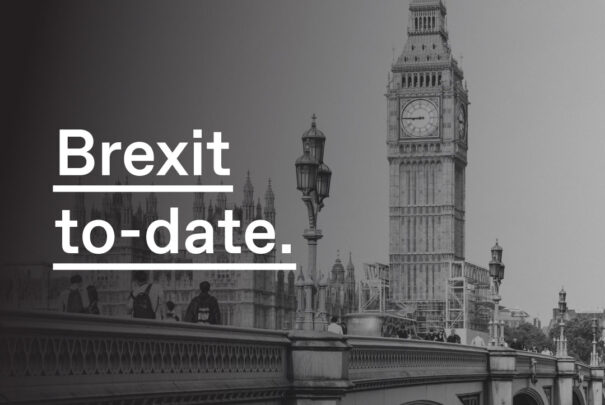“On 31st January 2020 the UK left the EU. We got Brexit done to take back control, to make our own laws, and to manage our own money.” – Prime Minister of the United Kingdom
Although there have been different critics and scaremongers on Britain leaving the EU, time has been showing that the UK has the opportunity to improve its economy by not just sitting passively outside the European Union, but by seizing the opportunities that are presented and use them to build a better economy and make UK businesses more competitive.
There are many benefits to Brexit: control of their democracy, borders and water; control of their own money, helping level up across the country; the freedom to regulate in a more proportionate and agile way that works for British businesses; the ability to share better environment as they achieve net zero by 2050; and a Britain that is truly global once again, with its own seat in the international table, reaching out and agreeing new trade deals and strategic partnerships.
The reinvention of London
According to a pan-European fund manager, “London has a great opportunity post-Brexit to become more than just financial, with a move into technology – as already seen with Facebook, Google and Amazon – and also into the life sciences.”
Many economists have been criticizing the decision to leave the EU, some saying that large corporations will leave the UK, and London will stop being the Financial Capital. This would, therefore, lead to lower market rental values for offices, and retail units as companies would leave the UK, increasing the availability of offices and reduced footfall for retail units. In addition, this would lead to reduce home prices as the demand for home would reduce. None of the above adverse developments took place.
Over the last year (Q4 2020- Q3 2021), London ranked first in Europe’s 10 most active markets, and first in overall real estate prospects. Diving into 20221, and according to the IMF, World Bank and Goldman Sachs, the UK is expected to be the fastest growing economy for this year, which is a significant vote of confidence in the UK.
In addition, based on PWC’s report Emerging Trends in Real Estate – Europe 2022, London is back as the most-favored city for combined investment and development opportunities, leaving Berlin in second spot. Based on Costar Group’s analysis, London offices are expected to attract £60 billion of Global Capital over the next 5 years. Sophisticated investors continue to be drawn to the UK’s flexibility, mainly since the country keeps being considered appealing thanks to its very dynamic market where rents and yields adjust rapidly.
The shortages of lorry drivers, farm laborer’s and abattoir workers have showed up teething problems in the ending of free movement of labor. However, economists have been surprised by the smooth introduction of a new visa regime to stem the losses. Jonathan Portes, a professor at King’s College London said, “We’ve seen Skilled Worker visas are substantially up on the pre-pandemic period and, in particular, the Health and Care visas have seen a huge take up.”
Furthermore, London remains strong post-Brexit in its Global position:
- London is the second most competitive city in the world for financial services, according to Global Financial Centre’s Index (2021)
- The 2021 KPMG Technology Industry Innovation Survey ranks London 5th
- The UK has one of the lowest corporation tax regimes in Europe, lower than any other G7 countries
- According to the Shanghai global ranking on economics education, the UK has the best universities in Europe for economics and finance education
- It has the advantage of the English language, the global language of finance, business, accounting and academia, which is spoken at a useful level by 2bn people
Economic fundamentals, together with a favorable regulatory regime, global transportation hub, knowledge excellence, economies of agglomeration, and London’s historical importance as a commercial hub, provide all of the necessary foundations for the city’s growth and prosperity in a post-Brexit environment. These unquestionable strengths secure London’s position as a major financial, innovation, and cultural center for the foreseeable future.
